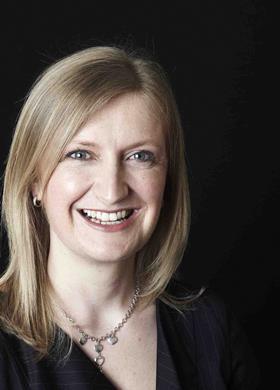Pay rates spiked last year as firms competed hard for a limited supply of good solicitors selling their labour at a premium. But will the recruitment frenzy continue in 2023, and will high salaries translate into longer hours? Rachel Rothwell reports
For legal headhunters, 2022 was a jackpot year. With too many vacancies and too few lawyers to fill them, law firms became locked into a battle of the chequebooks – and salaries soared.
‘2022 was pretty mad,’ recalls Duane Cormell, managing director at Realm Recruit. ‘In the early part of the year there was some silly money being thrown around, though that did slow a bit towards the end of the year.’
The problem facing law firms is that there are simply not enough qualified lawyers to go around. There has been a shortage of solicitors ever since the 2008 financial crash, but the pandemic exacerbated the problem.
‘At the start of Covid, law firms put recruitment on hold. But then they realised that they were still really busy,’ explains Rachael Mann, director at Yorkshire-based recruiter Sacco Mann. ‘It was a double whammy, because some lawyers chose to leave the profession during the pandemic – for example, because home schooling was so difficult, and they didn’t need to work. But in September 2020, all the roles came back, and so there was massive competition for people – I had never known anything like it. It has been really busy since August/September 2020, and it has not abated yet.’
Mann adds: ‘Unlike after the 2008 financial crisis, this time the war for talent was across all areas, not just certain [practice areas]. Even in matrimonial, for example, we’ve got clients crying out for matrimonial lawyers, and there just aren’t enough of them. Litigation, property, corporate, banking – they were all busy at the same time. And firms didn’t have enough slack to be able to retrain people and redeploy them in different areas.’
'In the early part of 2022 there was some silly money being thrown around, though that did slow a bit towards the end of the year'
Duane Cormell, Realm Recruit
As the scramble for candidates continued, in 2022 salaries took a sudden surge upwards. ‘This was partly driven by the US firms – basically because they could, as they had had a bumper few years,’ explains Tony Williams, founder of consultancy Jomati. Williams adds that magic circle firms then responded with their own salary hikes, which then spread to other City and national firms.

The effects rippled out beyond London, to the regions. Mann says: ‘In the past 12 months the massive uplift in salaries was prompted by a big increase in rates for newly qualifieds. The whole drive came from a large international law firm going big and going early, and saying their [regional] NQ rate would be £65,000. Other firms then felt they had to keep up to attract and retain people. If they had left that firm as an island, [the salary inflation may not have been as high], but [others] felt they needed to keep up.’
Another key factor that has fuelled salary inflation is the success of remote working. As Matthew Goodwin, director at Motus Recruitment, explains: ‘Firms now accept that people can work perfectly well from home two or three days a week. That has made the world a smaller place.
‘We’re based in Bristol, which is 50 minutes from Cardiff, and 90 minutes from Exeter. Say you can earn £15,000 to £20,000 more in Bristol than in Cardiff. Now that you only have to do that commute twice a week instead of five days a week, it has become a more attractive option. People can now access those higher salaries much more easily.
'The massive uplift in salaries was prompted by a big increase in rates for newly qualifieds. The whole drive came from a large international law firm going big and going early'
Rachael Mann, Sacco Mann
‘Bristol can now draw people from Cardiff, Exeter, or Cheltenham, because it can offer higher salaries. But at the same time, Bristol loses out by people now moving to London firms – they get the 6.25am [train] from Bristol Temple Meads twice a week. There is always a bigger fish in the pond.’
How did the in-house sector fare in 2022? Adele Callaghan, senior business director at Hays, reports: ‘The in-house market has been very busy, and salaries have had to follow suit [with private practice].
‘There’s been a big increase in senior hires – I’ve done more general counsel and head of legal roles than ever before. Some have been replacement roles but many have been first hires, suggesting that companies are getting more savvy and want a more proactive approach on the legal side.’

The year ahead
The big question for lawyers and recruiters is whether the good times will continue in 2023; or are we about to see a slowdown?
Goodwin predicts: ‘It is still very early in the year, but there is a sense of – where are all the candidates? Where is everybody?
‘Everything is relative, of course. The last 12–18 months have been incredibly busy – lucratively so for recruiters. So if we’re going into 2023 with a sense that things are going to calm down a bit, it may just quieten down to something that is “normally” healthy.

‘Most of our clients still have a healthy shopping list of roles they are trying to fill. Demand will be incredibly resilient in 2023. Whatever the macroeconomics, law firms are in a strong place financially, and importantly, they are in competition with each other… For most law firms, economic conditions would have to be quite remarkable for [them] to feel that standing still is the best option.’
He adds: ‘In 2023 I think the market will take a bit of a breath, and become a market that functions more normally. I think this year recruitment will be about taking on strategic hires and creating bespoke opportunities for good lawyers.’
David Bloom, senior consultant at Introlegal, adds: 'There is always a certain amount of movement at partner level. But the associate market is the area that may prove more of a challenge. There will be vacancies, but candidates may not want to move.'
The biggest challenge that recruiters will face this year is convincing lawyers that they should move to a new position, especially in an economic environment where job security has shot up the priority list and no one wants to be last in, first out.
‘An unusually high number of people in the profession over the last two years either moved jobs, or tried to move and got [enticed] back by a counter offer and are on a new deal. So they’re not interested in deliberately going to look for something else,’ Cormell reflects.
Will this shortage of available candidates mean we will see the same high levels of salary inflation as last year? US firm Skadden has already set out its stall, announcing newly qualified rates of £165,000 for 2023. ‘That’s a five per cent increase on last year,’ points out Williams. ‘But the US firms are helped by the strong dollar against the pound; plus the kind of work that they do can attract higher charge-out rates.’
So will this mark the start of another salary snowball that will roll down the hill to the rest of the London market and other parts of the UK? Not necessarily. Cormell says: ‘Since mid-2022, the money has not been thrown around quite as aggressively… The firms that we speak to are sick of it. They are saying “if the firm down the road want to do it and we end up losing a couple of people, then so be it. We are not getting into it – it’s too risky”.’
'The poaching of talent seems to follow the food chain, with larger firms targeting the talent in mid-tier practices'
Viv Williams, Viv Williams Consulting
Jennifer Pike, director at Jameson Legal, says: ‘We don’t expect to see such a dramatic hike in salaries this year, given the current landscape and economic climate. But while we’re faced with the threat of a recession in 2023, the legal market tends to be quite resilient.
‘There may be a downturn in transactional matters across the likes of corporate and real estate, but we’d expect to see an uptick in more contentious areas like commercial litigation, and restructuring and insolvency.

‘We’re also expecting the interim and contract market to remain incredibly buoyant, as this is an area heavily used by clients to scale-up large projects, cover periods of leave, to second to their clients, or to assist on niche or discrete projects. If firms and businesses struggle to get sign-off on permanent hires, they will generally be able to get sign off on a contract hire.’
Meanwhile, management consultant Viv Williams, founder of Viv Williams Consulting, predicts: ‘The poaching of talent seems to follow the food chain, with larger firms targeting the talent in mid-tier practices, and in turn, they are targeting smaller practices for their staff. This trend will continue during 2023, but will gradually slow as the economy changes.
‘All areas of law seem to be affected, with particular demand in private client, corporate and litigation. But we should see a slowdown in residential conveyancing and commercial property as the economy changes; and with double-digit inflation and higher interest rates, the war [for] talent should ease.’
Figuring it out
A report published by recruitment firm Hays this month, The UK Salary & Recruiting Trends 2023 guide, shows the extent of salary rises during the past year.
The findings, based on responses from more than 350 law firms and lawyers, found that 97% of legal employers hiring staff had been affected by skills shortages during the year – up from 84% in 2021.

Some 82% of firms had sought to address this by reskilling existing lawyers for a new position. In the coming year, 71% of legal employers said they were likely to employ a legal professional who did not have all the skills needed, with the intention of upskilling them; while 36% were looking to hire apprentices.
On the salary front, pay increased by 7.4% across the legal industry, compared with an overall average of 5.4% across all sectors. However, some legal roles enjoyed much higher wage rises. Pay levels for newly qualified solicitors in private practice rose by 14.6%; while salaries for solicitors with one year’s PQE increased by 12.3%, and general counsel saw salaries rise by 8.7%.
When it comes to moving jobs, although 81% of legal organisations now offer hybrid working, some 59% of lawyers said they would be tempted to leave their role to secure more flexibility.
Meanwhile, legal candidates were also swayed by a potential employer’s sustainability credentials. More than three-quarters of respondents said an organisation’s commitment to sustainability was ‘important’ when considering a prospective employer.
Bottom line
What impact are high salaries having on the bottom line of law firms?
Oliver Gibbon, senior business director at Hays, observes: ‘The way the market has gone with the salary hikes has made it a challenge for the independent firms to keep up, and they are finding it quite hard. Newly qualified [regional] rates had been at around £50,000 at the top end, to £40,000 at the bottom. They’re now £45,000 to £65,000 – so the gap has really widened. So a six- or seven-year-qualified lawyer at an independent firm may be being paid less than a newly qualified lawyer at an international firm. It does cause problems.’

Tony Williams adds: ‘It’s been very difficult for the regional firms. Some have had to increase salaries by 25%, and these firms don’t have big margins – many of them are on 25% margins. In 2023, some of the people getting the high salaries may think, “be careful what you wish for”.’
The law firm business model is pretty straightforward, he explains: ‘If you push up salaries, you can push up your charge-out rates, which some of the top firms have been able to do. But a lot of clients won’t accept double-digit charge-out rate [increases]. So people will have to produce more chargeable hours; or partners take less – or both.’
Williams adds that, traditionally, when recession looms, law firms are reluctant to let go of staff. Experience shows that for the legal sector, any difficult period is unlikely to last beyond 12 to 18 months; and if you cut too deep, it is then very difficult to hire people back quickly enough when the boom times return. But if firms are having to pay out high salaries with reduced profitability, then their patience will be more limited.
'It’s been very difficult for the regional firms. Some have had to increase salaries by 25%, and these firms don’t have big margins'
Tony Williams, Jomati
‘We don’t know quite how 2023 will pan out, but I think we will see firms looking more firmly at performance,’ he predicts. ‘I’m not saying that all firms will turn into sweatshops, but many will be [increasing] their expectations in terms of chargeable hours.’
Williams adds: ‘Corporate clients are facing their own pressures as well. It will be a slower year generally for recruitment. Firms will be very reluctant to embark on redundancy programmes, but you will see more hard-nosed performance reviews.
‘And when someone leaves, firms won’t automatically say they want to replace that person. Firms will look much harder at the people they’ve got and the recruitment they need. If some areas are quieter, they will reskill people rather than get new people in.’

Consultant model
A major influence on recruitment trends for 2023 is the increasing popularity of the self-employed solicitor model.
Viv Williams says: ‘We mustn’t ignore the growth of the consultant model, where traditional candidates are making a lifestyle choice of more flexible working from home, at a time and pace to fit into their lifestyles. This talent is being lost to the traditional talent pool and that seems to be a growing trend.
‘While this isn’t a huge number at present, it represents several thousand individuals all working in a more flexible way.’
Hamish Savin is a talent acquisition specialist at Setfords, which focuses on recruiting consultant solicitors. He says: ‘Interest in choosing the consultant lawyer path is continually growing… market data shows this trend is set to continue to rise sharply over the coming years, with one prediction suggesting that one third of all lawyers will work for “virtual” firms by 2026 (tinyurl.com/jwxxw3h8).’
'If anything, in 2023 we will see an even bigger increase of workload per lawyer, as firms tighten their belts'
Dana Denis-Smith, Obelisk
Dana Denis-Smith, CEO and founder of alternative legal services provider Obelisk Support, says she expects the ‘freelance solicitor’ market to grow ‘exponentially’ in 2023. She adds that although law firms are being driven to offer their fee-earners more flexibility thanks to competition from the consultant solicitor sector, ‘there are few role models and examples [within law firms] where leaders have flexible working arrangements, and the perks on offer do not always address the underlying long-hours culture.’

For Denis-Smith, flexibility is now a ‘default expectation’ for lawyers – and many law firms are failing to meet it properly. ‘If anything, in 2023 we will see an even bigger increase of workload per lawyer, as firms tighten their belts in response to the global economic downturn,’ she predicts. ‘This will result in more talent looking for autonomy, not just money.’
Denis-Smith adds: ‘2023 will be the true year of quitting in the legal profession that was much talked about in other areas of work as a result of the pandemic. After all, you can only keep people chained by money for so long.’
Rachel Rothwell is a freelance journalist
































1 Reader's comment